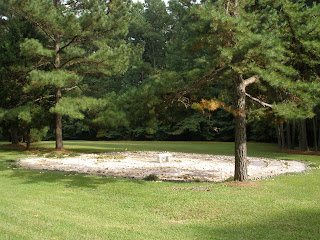“For where two or three are gathered in my name, I am there among them.” Matthew 18:20.Shortly after Freedom Friends Church recorded my gifts of ministry in June 2013, I had a couple opportunities for public ministry. On June 30 to July 6, I led a five-day workshop on Convergent Friends at the FGC Gathering, and I had the opportunity to preach at Camas Friends Church on July 28. I also found I had many opportunities, both formal and informal, to use my gifts. I clerked a conference call clearness committee for a Friend who was discerning how to leave her job, and I was approached by several (mostly young) Friends, online and in person, to talk about topics that have been important for me over the past several years, such as the gift of prophecy, being a woman in ministry, and how it feels to be led to give vocal ministry. My primary focus during that time, however, was the transition from my life in Salem to beginning seminary in Atlanta. It was a full, emotional, and surprisingly productive summer!
On August 19, the cats and I flew across the country to our new home in Atlanta. Orientation at Candler School of Theology began two days later. The transition was harder than I expected, and my experience at Candler so far has been decidedly mixed. There are things that I love about studying at Candler: my classes are interesting, the professors are brilliant and entertaining, and my classmates are thoughtful and kind. I am especially excited about getting to take practical classes such as Nonprofit Leadership and Management and Vocational Discernment for a Sustained Life of Ministry. As part of my contextual education, I spend Mondays as a chaplain intern at a women’s prison located about an hour north of Atlanta; that is one of the highlights of my week. I also enjoy singing in a choir for credit.
But in the first few weeks of my time at Candler, the administration decided to give an alumni award to Eddie Fox, a man who has been extremely vocal in the fight to prevent full equality for LGBT people in the United Methodist Church. I ended up in tears in a meeting with the dean and other students and faculty, saying how hurt I felt by the decision to give this award and questioning whether, as an out bisexual, I was really welcome at Candler. In response to this controversy, an alum wrote that she feels Candler is “welcoming but not affirming,” and I have to agree. It was especially disappointing for me because that is not the way Candler presents itself in its promotional materials. One positive outcome is that I quickly connected with the LGBT group at Candler (Sacred Worth), and I have felt very supported by the Emory Office of LGBT Life and other allies on campus.
Another source of support has been friends at Atlanta Friends Meeting. It was easy to decide which Quaker meeting to attend in Atlanta because there is only one! Atlanta Friends reminds me a lot of University Friends Meeting in Seattle, both in size and culture, and Friends there have been very welcoming. I became a sojourning member in October and I anticipate joining a meeting committee soon. I have also asked the meeting for a support committee.
In November, I had the opportunity to attend a School of the Spirit spiritual renewal weekend in Durham, NC. I also got to spend the night before the retreat with Friends at Wings of Dawn Farm. It was wonderful to see so many friends from my School of the Spirit class and others. I found while I was there that the planned theme of the renewal weekend (on loss and failure) was not speaking to me, so I spent most of the weekend on a true retreat, taking time for quiet rest and reflection. It was good for my soul and reminded me of my need to incorporate more times of retreat into my daily life.
I have continued to do some writing, though writing on my blog ebbs and flows as usual. I published a piece on working with an elder in the Western Friend book An Inner Strength: Quakers and Leadership, which came out in July. I have an upcoming article in Friends Journal on the importance of financial support for ministry. I have also been doing a fair amount of writing for my seminary classes and expect to do more this semester.
I feel that my self-care during this time of transition has been good. My course load last semester felt manageable and I did not do very much paid legal work. I have been intentional about my spiritual practices: setting aside time in the morning for prayer, reading a chapter of the Bible each night, taking Saturday as a sabbath from schoolwork, and getting regular exercise. I have begun meeting monthly with a spiritual director, and Aimee M and I have kept up a spiritual friendship, checking in with each other over the phone every few months.
Looking ahead, the biggest thing on the horizon is that I will be giving a plenary message at the FWCC Consultation in High Point, NC on April 11. I am preparing the message in advance so it can be translated into Spanish for simultaneous interpretation. I hope to spend next summer working in Salem, and I have offered to lead a workshop on prayer at the Pacific Northwest Quaker Women’s Theology Conference. My New Year’s resolution this year is discernment for a sustained life of ministry, and I have already found several opportunities to practice discernment!
I am grateful to all of you at Freedom Friends Church for your love, prayers, and support, as well as for the gift of my recording this year. I am holding you in prayer as you meet for yearly meeting, and I look forward to seeing you next summer.
Love,
Ashley









